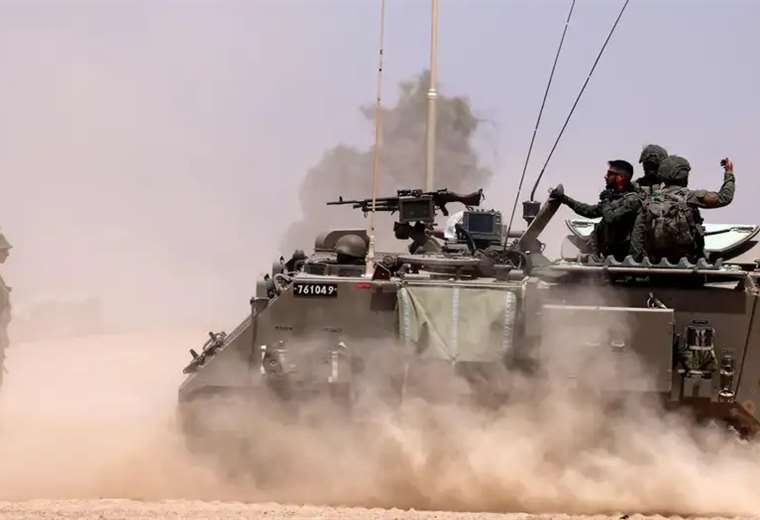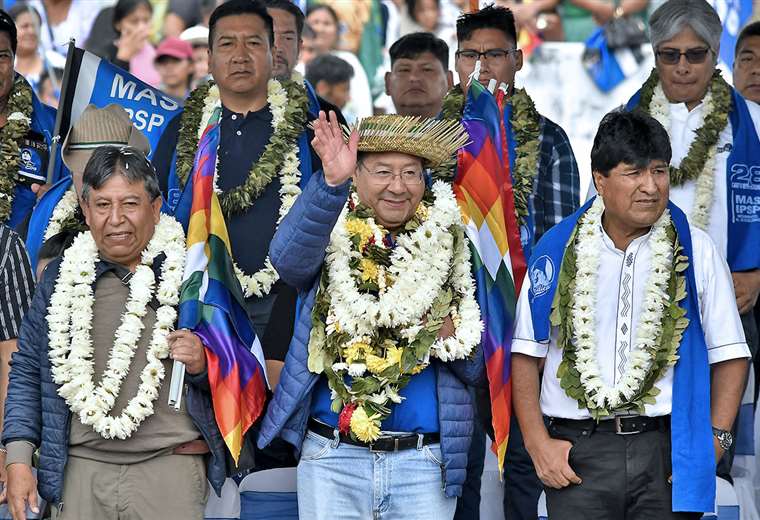April 28, 2024, 11:47 AM
April 28, 2024, 11:47 AM
When does the Israeli offensive on Rafah begin?
Since the beginning of February, there has been discussion in Israel about a possible military offensive against Rafah, in the south of the Gaza Strip. According to Israeli media reports on Thursday (April 25), the armed forces have already completed their preparations for the offensive. The only thing missing is the green light from the Israeli government. Prime Minister Benjamin Netanyahu recently said the offensive could begin “in the coming days.” He had already warned that “international pressure” was not going to prevent it. The Army leadership has publicly estimated about six weeks of “uninterrupted combat” for the operation.
However, security experts do not believe the offensive is imminent. Neighboring Egypt is trying to negotiate a new hostage deal between Israel and Hamas, hoping to prevent or at least delay the offensive on Rafah.
What is the situation of the population of Rafah?
More than 80 percent of the Gaza Strip’s population is displaced. Of the more than 2.3 million inhabitants, up to 1.4 million have found refuge in Rafah after the Israeli armed forces seized the northern Strip. This makes Rafah currently the most populated city in Gaza.
The refugee camps in the Rafah region are full: there is a lack of food, medicine and drinking water. “The humanitarian situation in Gaza is incredibly bad,” said a representative of the US development agency, USAID. In the southern Gaza Strip, almost a quarter of the population suffers from catastrophic food insecurity, which particularly affects children.
Why is Rafah so important to Israel?
Rafah is considered the last major base of the Islamist terrorist group Hamas, which carried out a massacre in Israel on October 7 last year and kidnapped 240 people, taking them to the Gaza Strip as hostages.
Israel assumes that up to four of Hamas’ former 24 brigades are still hiding in or under Rafah. Fighting them is, from this perspective, a crucial step to defeating the organization.
Hamas’ combat capabilities have been greatly diminished after seven months of war against Israel, but the terrorist group has not yet been defeated militarily. Although the number of rocket attacks against Israel has decreased significantly, the organization still has many of them, as well as drones. Observers assume that Israel has so far destroyed between 70 and 80 percent of Hamas’ weapons arsenal.
How does Israel plan to protect civilians in Rafah?
The Israeli military announced this week that preparations for the evacuation of civilians from Rafah had been completed. The Israeli Ministry of Defense has purchased around 40,000 tents for them, to house them in and around the city. The AP news agency published images of one of the first and largest camps west of Khan Yunis. It is currently unclear where additional supply points could be created.
Meanwhile, the United States has begun building a temporary port off the coast. According to US information, the temporary port facility in the north of the Gaza Strip could be ready for operation in early May and thereafter could facilitate the supply of civilians.
But building infrastructure that works for hundreds of thousands of internally displaced people requires many partners. Such a process involving aid organizations, UN agencies and donor states could take several more weeks. Currently, much of the aid reaches the camps through the Rafah border crossing.
What do others say?
In the event of an Israeli military offensive, neighboring Egypt fears that many refugees from the border city of Rafah could reach the Egyptian Sinai. In this context, the leaders in Cairo have threatened Israel with canceling the peace treaty.
The most significant criticism of Israeli attack plans also comes from the country’s most important ally, the United States. US President Joe Biden asked Israel’s prime minister in February not to launch the offensive without a credible plan to protect civilians. Israel was at least willing to talk about the issue. Secretary of State Antony Blinken warned again a week ago: “We cannot support a major military operation in Rafah.”








